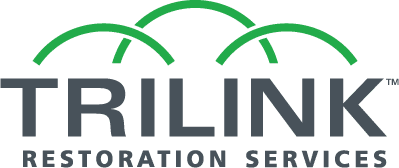trilink
History
TRILINK Restoration Services is one of Oklahoma’s largest property restoration companies, with an impressive tenure of several employees boasting over two decades with the company. TRILINK Restoration Services has focused largely on industries such as property management, higher education, government and municipalities, and healthcare as well as on work with local tribunals. In February 2016, Rob Roberts became the owner of TRILINK Restoration Services and has brought with him his philanthropic spirit. The Children’s Miracle Network is a cause dear to Rob’s heart, as he raised over $138,000 showing off his dance moves for their “Dancing for a Miracle” charity event. Today, TRILINK’s family-oriented values bring a strong backbone to FIRST ONSITE.
Joining Forces
Rob Roberts purchased TRILINK Restoration Services in February 2016. By 2021, TRILINK Restoration Services was effectively servicing a large part of Oklahoma and the team wanted to grow. However, in order to do so, they needed to expand their capabilities, services, geography, and people. After reviewing different partnership opportunities with numerous companies, it was obvious that Interstate Restoration (now FIRST ONSITE) was by far the best option. TRILINK Restoration Services knew that the partnership would be a win for everyone, including TRILINK Restoration Services employees, the Interstate Restoration team (FIRST ONSITE), and, most importantly, the TRILINK customers. The biggest appeal in the partnership for TRILINK was the business model, culture, reputation, history, and future plans with the organization. The partnership allowed TRILINK to build on their existing success while keeping their existing team members and provide even better service to their customers.
